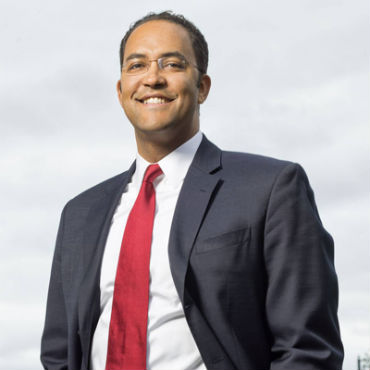Capitol Hill IT modernization champion Will Hurd reintroduced a bill to support the retirement of legacy technology and the shift to cloud and managed services.

Rep. Will Hurd (R-Texas) reintroduced a bill to spur IT modernization.
The Modernizing Government Technology Act is back.
The bill, which gives agency CIOs access to funds to move legacy IT operations to managed services, has been revised to handle objections from the Congressional Budget Office and from some appropriators who think it risks handing over the power of the purse to unelected bureaucrats.
The bill has some high-profile support and could see action in the House in a matter of weeks.
At the White House, Reed Cordish and Chris Liddell, assistants to President Donald Trump and members of the Office of American Innovation, issued a statement saying the bill was "important bipartisan work" that "will enable significant progress to be made towards creating a more effective, efficient and accountable government for all Americans."
A version of the MGT Act passed in 2016, but it stalled in the Senate because of a $9 billion Congressional Budget Office score that supporters, including chief sponsor Rep. Will Hurd (R-Texas), thought was unwarranted.
The new bill calls for $500 million to go to a central fund to be administered by the Technology Transfer Service at the General Services Administration: $250 million in fiscal year 2018 and $250 million in fiscal year 2019.
This is a downgrade from the previous version of the bill, which called for a $3 billion revolving fund. The CBO score was based on agencies paying back the revolving fund from their savings, and then the fund subsequently dispensing those funds to jumpstart other major IT projects. The lower amount of the general fund and new language about reimbursement and reallocation is expected to dramatically lower the CBO score, making the bill more appealing to appropriators.
The real activity generated by the bill is designed to take place at the agency level. The bill sets up individual funds at each agency that appropriators can fund and agencies can draw on to take on big modernization projects and pay back with savings to fund future projects for a period of three years.
"Some will take advantage of it, others won't," Hurd told FCW in a phone interview.
There's a lot of momentum building behind the bill, including support from the IT vendor community and more importantly from House leadership and the White House.
Majority Leader Kevin McCarthy (R-Calif.) said the bill "restructures the governments' flawed approach to IT and could set off a new era of constituent-first government service." He promised to schedule floor time for the bill as soon as it passes committee.
The bill must pass the House Oversight and Government Reform Committee. Chairman Jason Chaffetz (R-Utah) recently made news by announcing that he would not seek reelection in 2018 and that he was also taking a leave of absence from his duties to recover from foot surgery. A committee spokesperson had no information on who might be wielding the gavel in Chaffetz's absence.
The first step, however, will come on May 2, which the MGT Act is scheduled for markup at the full committee's business meeting.
A companion bill is being introduced in the Senate, sponsored by Jerry Moran (R-Kan.) and Tom Udall (D-N.M.) The pair authored a cloud adoption bill in early 2016, the substance of which was absorbed into the first iteration of the MGT Act.
"In the 10 months since we first introduced legislation, Americans have come to understand firsthand the importance of cybersecurity. Meanwhile, federal government data and critical infrastructure are currently compromised by outdated IT systems incapable of supporting best practices to help safeguard sensitive information," Moran said in a statement. "Bringing the government’s aging IT systems into the 21st century would not only shore up our cybersecurity, but also save billions of taxpayer dollars through reductions in wasteful spending for years to come. The IT investment reforms included in this legislation are an important step toward a more efficient, effective and secure government."
But even if the MGT Act passes, making IT investments in a time of budget cuts and possible federal employee layoffs is going to be a tough sell.
"The big secret on IT modernization that nobody wants to talk about is that there's an upfront cost," said Mike Hettinger, a former senior House aide who lobbies on behalf of IT vendors. "You've got to run existing legacy systems in parallel," while agencies are contracting to move to the cloud. "That's why it's important that there be money through the appropriations process," Hettinger said.
Hurd echoed this reality, noting that while the MGT Act sets up agency funds, "it's up to House and Senate appropriators to decide if they're going to fund it. Then working capital funds become a tool that CIOs are able to use."
At the same time, Hurd said he is hoping that agencies and appropriators get the message that moving off legacy systems is going to save money and shore up cybersecurity.
"A move towards modern technologies can keep our information and digital infrastructure secure from cyberattacks, while saving billions of taxpayer dollars. This legislation is an innovation solution and another step forward in strengthening our digital infrastructure," he said.






